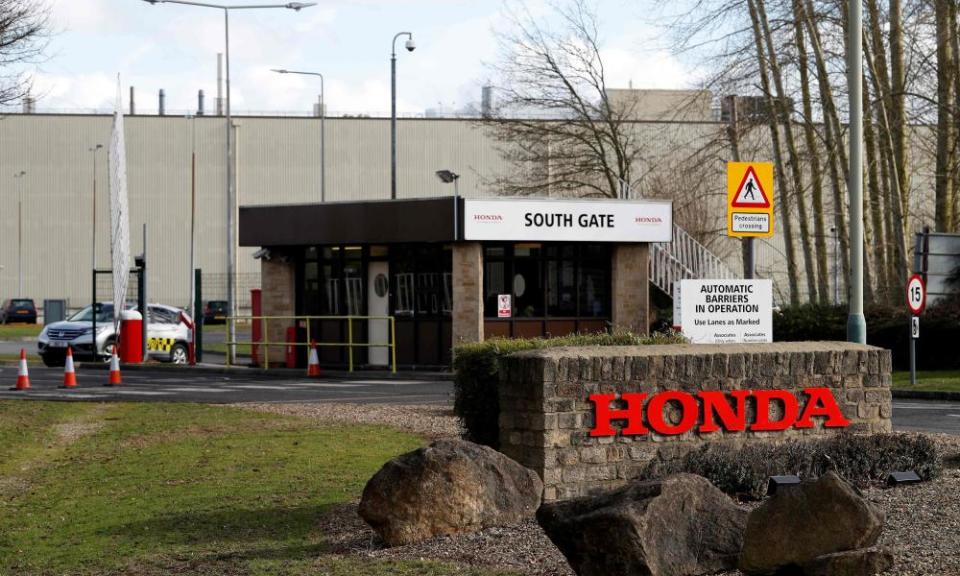Honda to close UK plant for four days owing to supply chain problems

Honda will shut its UK factory for four days next week as global supply chain problems caused by the coronavirus pandemic continue to plague the Japanese carmaker.
The closure is thought to be related to the unavailability of semiconductors, the computer chips used to run cars’ onboard management systems. The problem has affected carmakers around the world. Volkswagen has described it as a “global semiconductor bottleneck”.
Honda UK told workers that some production activities would be suspended between 18 and 21 January because of Covid-related global supply issues, a spokesperson said. The factory will aim to restart production on 22 January, he added.
Volkswagen, Toyota, Fiat Chrysler, Ford and Nissan have all been forced to adjust production around the world. VW, the world’s largest carmaker by volume, said it would have to build 100,000 fewer cars because of the semiconductor shortage.
Honda’s UK plant, in Swindon, Wiltshire, is to close its doors permanently in the summer, but its final months have not been smooth. The plant, which builds the Civic car, is the firm’s only manufacturing site in Europe, meaning it is heavily reliant on imports from Asia.
Global container shortages caused big problems for importers before Christmas, adding to congestion at British ports as companies stockpiled before the UK left the EU’s single market on New Year’s Day.
Honda was forced to begin the Christmas shutdown at Swindon a week early. Toyota and Jaguar Land Rover (JLR) also closed early because of the supply chain problems at their respective plants in Burnaston, Derbyshire, and Castle Bromwich in the West Midlands.
The semiconductor shortage has added yet another complication, pitting carmakers against consumer electronics manufacturers for supplies as sales rise after the pandemic disruption. Carmakers have increasingly added more complex computing for systems ranging from in-car entertainment to the battery management that plays a crucial role in electric vehicles.
“Demand has been growing as cars become more and more connected,” said Kristina Church, the head of sustainable solutions at Lombard Odier Investment Managers. She said the pandemic had caused problems for carmakers, shifting their focus away from refining lean “just-in-time” supply chains towards preparing for “just-in-case” supplies of key components.
Other UK factories have not yet been directly affected by the semiconductor shortages, although Toyota, BMW and JLR said they were closely monitoring the situation.
BMW has not yet restarted production at its Mini plant in Oxford after an extended Christmas shutdown to install new painting equipment. All of JLR’s plants have reopened and production at Toyota and Vauxhall’s UK plants is also going ahead as planned.
The sensitivity of supply chains has been underlined by the recent problems as companies adjust to new trading barriers that came with the Brexit trade deal agreed on Christmas Eve.
The deal ensured that carmakers in Britain for now face no tariffs or quotas on most imports or exports from the EU, after some companies warned that tariffs could endanger the future of their UK operations. However, new customs checks have added obstacles, and car industry executives are warily eyeing UK ports as trading volumes pick up after a new year lull.

 Yahoo Finance
Yahoo Finance 